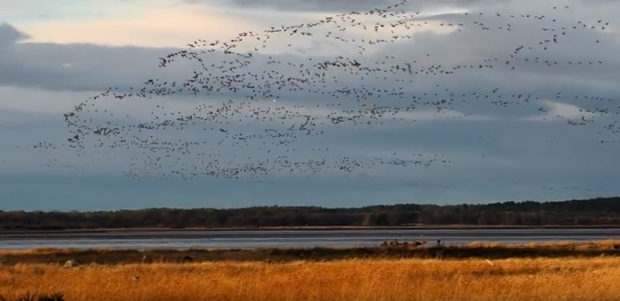Campaigners seeking tighter rules on shooting at a Moray beauty spot fear a truce may never be reached as hunting groups quarrel over the terms of any agreement.
The British Association for Shooting and Conservation (Basc) and the Scottish Association for Country Sports (Sacs) are playing a leading role in negotiations about how best to regulate wildfowling at Findhorn Bay.
But the organisations have been accused of failing to get on the same page.
Yesterday, the groups rallied together to release a joint statement – but did not address allegations of a divide between them.
The Friends of Findhorn Bay protest group had originally called for an outright ban on the practice.
But lead campaigner, Lisa Mead, attended a meeting aimed at finding a compromise which would suit wildlife enthusiasts and hunters this week.
Following the summit, she raised doubts over the ability of the shooting groups to settle on a set of regulations that members of both organisations would adhere to.
She said: “Unfortunately, it is clear that any meaningful change to the status quo will be very hard for the shooting groups to agree amongst themselves, let alone with us.”
The meeting was led by Findhorn Bay Nature Reserve committee chairman Roy Dennis.
A spokeswoman representing both Basc and Sacs would not go into detail on how the gathering played out.
She said: “The meeting was the start of a discussion to reach an agreed resolution.
“It would therefore be inappropriate to say any more at this stage apart from thanking Roy Dennis for convening and chairing the meeting.”
It appeared that a truce had been reached between the shooters and the Friends of Findhorn Bay this summer, on where and when hunting could take place.
But the peace agreement was left in tatters when the season resumed at the start of September, as Basc told its members to ignore the “unnecessarily restrictive” rules.
The organisation refused to acknowledge the terms of the deal because it was not involved in the final decision.
Following Tuesday night’s meeting, Mrs Mead said she was determined to seek a “spirit of compromise” which would see fewer geese and ducks killed at the reserve.
